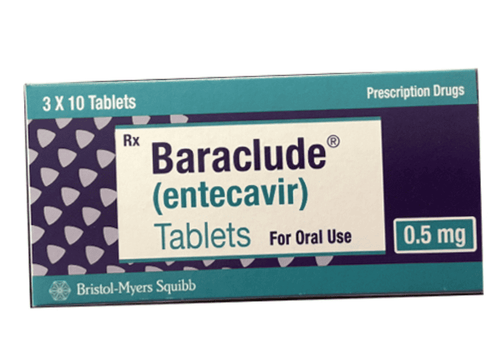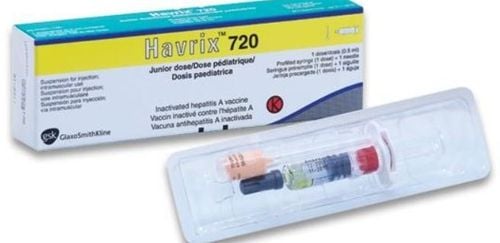This is an automatically translated article.
The article was professionally consulted by MSc Vu Tan Phuc - Gastroenterologist - Department of Medical Examination & Internal Medicine, Vinmec Phu Quoc International General Hospital. The doctor has nearly 10 years of experience in the field of gastroenterology with strengths in diagnostic and therapeutic Gastrointestinal Endoscopy.Unlike other forms of hepatitis, hepatitis E does not lead to long-term illness or damage to the liver. But hepatitis E can be dangerous for pregnant women and anyone with a weakened immune system, including the elderly and sick.
1. Hepatitis E virus
Hepatitis E is a liver disease caused by the hepatitis E virus (HEV). It can cause the patient's liver to swell. Each year, there are an estimated 20 million HEV infections worldwide, of which about 3.3 million are hepatitis E.WHO estimates that hepatitis E caused approximately 44,000 deaths in 2015 (accounting for 3.3% of the mortality rate due to viral hepatitis). Hepatitis E is found worldwide, but the disease is most common in East and South Asia.
Hepatitis E is a liver disease caused by the hepatitis E virus (HEV). Viruses come in at least four different types: genotypes 1, 2, 3 and 4. Genotypes 1 and 2 are found only in humans. Genotypes 3 and 4 are found in some animals (swine, wild boar and deer) that do not cause any disease and sometimes infect humans.
The disease is common in low- and middle-income countries with limited access to essential water, sanitation and health services. In these areas, the disease occurs both in outbreaks and in sporadic cases. The sporadic cases are also thought to be related to water pollution, albeit on a smaller scale.
In areas with better sanitation and water supply, hepatitis E is infrequent. Most of these cases are caused by type 3 viruses and are triggered by viral infections of animal origin, usually by eating undercooked animal meat (pork liver) and are not related to water contamination. or other food.
In China a vaccine to prevent hepatitis E virus infection has been developed and licensed, but in other countries it is not yet available.

2. How is hepatitis E virus transmitted?
The hepatitis E virus is transmitted by the fecal-oral route, mainly through contaminated water.The virus is shed in the feces of an infected person and enters the human body through the intestines. It is transmitted mainly through contaminated drinking water. Hepatitis E is more common in many parts of the world with poor hand-washing practices and a lack of clean water.
Other routes of transmission have been identified, but appear to account for a smaller number of clinical cases. These routes of transmission include:
You can also become infected with the hepatitis E virus if you eat undercooked meat from infected animals such as pigs or deer. Transmission of infected blood products Vertical transmission from mother to child Usually, the infection is self-limited and resolves spontaneously within 2 weeks to 6 weeks. In more severe cases, the hepatitis E virus can cause acute liver failure and death.

3. Symptoms of Hepatitis E
The incubation period after exposure to HEV ranges from 2 to 10 weeks, with an average of 5 weeks to 6 weeks. People infected with the virus begin to excrete it from a few days before to three to four weeks after the onset of illness.In areas where hepatitis E is common, infection is most symptomatic in young people aged 15 to 40 years. In these areas, although infections occur in children, they are often asymptomatic or present with only mild symptoms such as low-grade fever. Typical signs and symptoms of hepatitis include:
In the early stages, the patient has a mild fever, loss of appetite, nausea and vomiting,... This condition lasts for several days. Some people may develop abdominal pain, itching (without skin lesions), skin rash or joint pain, jaundice, dark urine and pale stools, and an enlarged liver.
In rare cases, acute hepatitis E can be severe and lead to acute liver failure. These patients are at high risk of death. Fulminant hepatitis occurs more often in women who are pregnant and have the hepatitis E virus. Pregnant women with hepatitis E, especially those in the second or third trimester, are at increased risk of developing hepatitis. acute liver failure, miscarriage and death. Up to 20%-25% of pregnant women may die from hepatitis E in the third trimester.
Cases of chronic hepatitis E infection have been found in immunosuppressed individuals, especially immunosuppressive organ transplant recipients, who are infected with hepatitis E virus genotype 3 or 4.

4. Treatment and prevention
To diagnose hepatitis E, your doctor will order a blood test or a stool test. In most cases, hepatitis E will clear up on its own in about 4 to 6 weeks.Some of the following measures help patients reduce the symptoms of the disease such as:
Rest Eat healthy foods Drink lots of water Avoid alcohol Consult your doctor about medications you are taking , because they can be as harmful to the liver as acetaminophen.

There is currently no vaccine that can prevent hepatitis E virus. However, you can prevent infection by taking precautions such as:
Cooked food, boiled water Wash your hands with soap before and after preparing food, changing diapers Do not drink unhygienic water or ice Do not eat undercooked food such as blood soup, venison, raw shellfish. Due to the problem of alcohol abuse, eating toxic foods, the incidence of hepatobiliary disease in Vietnam is increasing, especially hepatitis D. To meet the demand for medical examination and treatment Liver - Bile - Pancreas, Vinmec International General Hospital has launched standard liver - bile screening packages, comprehensive liver - bile screening packages and advanced liver - bile screening packages to help assess liver function. confidentiality through testing, subclinical; the risk of affecting the liver and early screening for hepatobiliary cancer.
Please dial HOTLINE for more information or register for an appointment HERE. Download MyVinmec app to make appointments faster and to manage your bookings easily.
Source: wedmd.com & who.int













